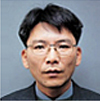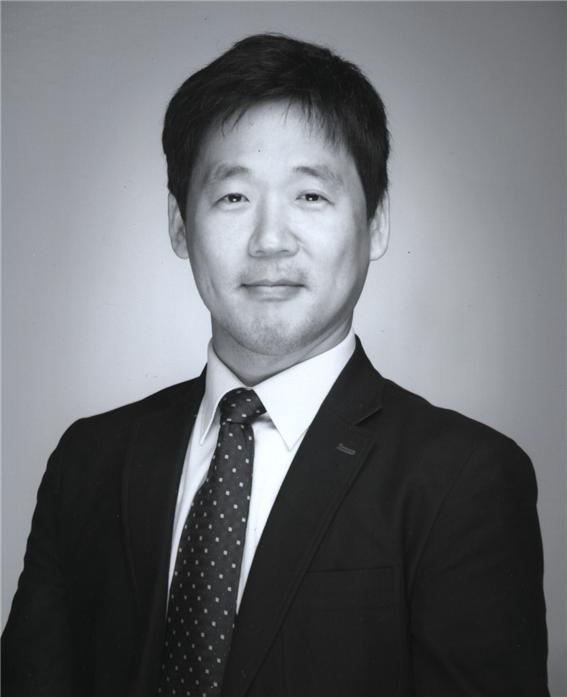
The College of Education nurtures competent secondary school teachers who can contribute to the development of a democratic society by acquiring integrated thinking ability based on the theory necessary for each major area and practical educational skills related to the school field with a firm sense of duty as an educator. In addition, thanks to our well-organised educational system, we boast of the highest passing rate in the recruitment examination in the region, and we are also serving as a cornerstone of national education in each field of society.
- Department of Korean Language Education
- Department of English Education
- Department of Social Education
- Department of Agricultural Education
- Department of Mathematics Education
- Department of Computer Education
- Department of Environmental Education
- Department of Physical Education
- Department of Chemistry Education
- Department of Teaching, Counseling Psychology Major
Website
https://www.scnu.ac.kr/chemedu/main.doDepartment introduction
The word “chemistry” means “the study of change.” By the way, what kind of change does “change in chemistry” really mean? In a word, chemistry is “the study of change of matter.” It means the study of creating various new substances useful to us by using numerous substances in the natural world as raw materials. Let’s look at a few specific examples. The three most necessary things for a person’s life are often summed up as “food, clothing, and shelter.” First, looking at “clothing,” which refers to various kinds of clothing worn on the body, in the old days, natural materials such as cotton, burlap, silk, and animal hair or leather were used as they were. These days, however, with the development of chemistry, various synthetic fibers such as nylon, polyester, and acrylonitrile have been developed and are used much more than natural materials. Next, in the case of “formulas,” which refer to food, chemistry plays a very important role. The use of “fire” is noteworthy among the unique characteristics of humans that other living things do not have. Among the foods, there are many things that can be eaten naturally such as vegetables and fruits, but most grains and meats are chemically changed when cooked over a fire, which improves not only the taste but also digestion. Even in recipes that do not use fire, chemistry is important. Kimchi, the most representative Korean food, uses a chemical change called “fermentation.”
Fermentation also occurs in soy sauce, soybean paste, gochujang, bread, cheese, and yogurt; the raw material for alcohol is also obtained through this. Aside from the preparation of food, the “digestion” that occurs in our body after eating is also a chemical process. Digestion takes place between the mouth and intestines; at this time, food is broken down into nutrients by chemical reactions caused by various “enzymes” and absorbed by our body, and unnecessary waste is discharged outside. The same is true of “shelter,” which refers to a facility designed for us to live in various ways. In the past, people lived with little touches of wood, soil, and stones; today, however, concrete, which hardens through chemical changes, is the most important building material. A look inside the building reveals more. When making facilities such as doors, window frames, wallpaper, floor boards, electrical facilities, water and sewage systems, and washbasins, chemical change is very much used directly or indirectly.
Chemistry is widely used in high-level life beyond food, clothing, and shelter. Various medicines that are taken when the body is ill are created by changing a number of substances through chemical reactions. Computers, which can be said to be the protagonists of modern civilization since the 20th century, are also heavily dependent on chemistry. Various batteries, such as dry cells, also use chemical reactions; thus, without chemistry, mobile phones, MP3s, or digital cameras cannot be used. Furthermore, the era of electric vehicles, which many people expect, will never come. Like this, chemistry often finds its roots in ancient alchemy. It began to be established as a formal academic system from the mid-18th century; by the 20th century, it has become a basic science and a basic industry supporting all fields of human life, such as energy, new materials, pharmaceuticals, semiconductors, automobiles, machinery, aviation, and space, continuing to expand its influence even today. The Department of Chemistry Education has as its basic goal the nurturing of talents in the field of chemistry education who will respond to and lead the needs of this cutting-edge scientific civilization. In light of this purpose, students wishing to major in chemistry education must first have deep and broad interest in natural phenomena and attitude of acquiring basic knowledge through creative and logical thinking skills. In addition, based on the sense of calling and sense of duty as a teacher, efforts should be made to nurture educational abilities that will instill excellent scientific literacy in young students in the future. In the Department of Chemistry Education, the most basic career path is to become a teacher in charge of chemistry subjects through this route. Other than this, however, you can go to graduate school to explore more specialised fields; in this process, you can progress to become a scholar or an expert in educational policy. There is also a way to switch to a broader field and get a job in civil service or at a related company. Therefore, the Department of Chemistry Education will do its best to help students make valuable achievements based on their majors in any field.
Department phone number
+82 61-750-3390
Teaching staff introduction
-

Kwak, Jihoon
- Position
- professor
- Major / Degree
- Inorganic Chemistry / ScD
- Tel
- +82 61-750-3636
- chkwak@sunchon.ac.kr
-

Choi, Wonho
- Position
- associate professor
- Major / Degree
- Chemistry Education / DEd
- Tel
- +82 61-750-3394
- stensil@sunchon.ac.kr
-

Gong, Jintaek
- Position
- assistant professor
- Major / Degree
- Oragnic Chemistry/ScD
- Tel
- +82 61-750-3633
- jintaek@scnu.ac.kr
-

Park,Chulkyu
- Position
- Assistant professor
- Major / Degree
- Chemistry education/Ph.D.
- Tel
- +82 61-750-3396
- ckpark@scnu.ac.kr
